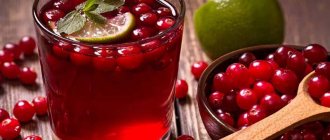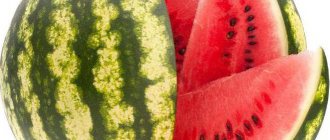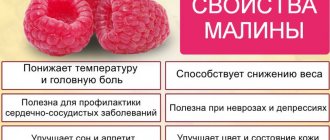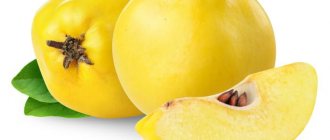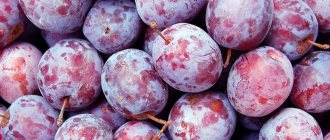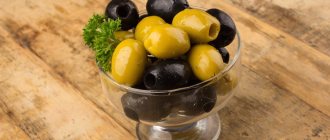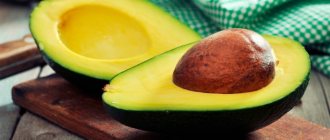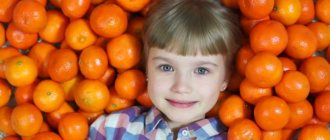Berries are truly unique gifts of nature - even a small volume of such a product contains a lot of useful substances and microelements.
Wild berries are considered especially useful, but the safety of consuming them during lactation raises doubts, for example, are lingonberries allowed during breastfeeding or not? We will look for an answer to this question in our article, and will also look at what properties this berry has and whether it can positively affect the health of the baby and the nursing mother.
Description of the berry
Lingonberry is an evergreen low-growing shrub that has red, sweet and sour fruits. The berries of the plant have healing properties. They help replenish resources for vitamin deficiency, improve the functioning of the immune system and strengthen the entire body.
A decoction of lingonberry berries has pronounced bactericidal and disinfecting properties. The product has a diuretic effect, has choleretic properties and copes with parasites.
Lingonberries can be consumed during pregnancy. It helps to avoid the development of anemia or neurosis. You can make delicious compotes and fruit drinks from the fruits.
The berries contain many vitamins B, A, P, E, C. The product also contains calcium, magnesium, and phosphorus. It contains manganese, sodium, and iron. Lingonberries have high biological activity. It contains a large number of active substances - essential oils, tanning components, phenols.
Specifics of using lingonberries for breastfeeding
The list of permitted and prohibited foods during lactation says that a nursing mother is not recommended to eat brightly colored berries. The bright color of the fruit is given by carotene, which is a strong allergen. Lingonberries have a rich red color, which sometimes causes rashes, redness and other allergic reactions in babies.
To avoid the risk, lingonberries can be introduced into the diet of a nursing mother in the third month of lactation. In this case, you need to start with one or even half of the fruit. Eat a small berry in the first half of the day and observe the baby’s reaction for two days. If there are no negative consequences, you can safely eat and increase the dosage of berries.
If your newborn has allergies or colic, postpone the introduction of lingonberries to the menu. You can try again in a month. During this time, the baby’s body gets stronger and adapts, which allows you to expand the list of dishes during lactation.
First of all, you can try compote and lingonberry juices diluted with water. By the way, the leaves of the berry do not pose a risk of allergies, so they can be consumed already in the second month after the birth of the child. Tea or decoction of lingonberry leaves will be a tasty and invigorating drink for a nursing mother. In addition, it has a positive effect on lactation. Warm, generous amounts of heat are known to increase breast milk flow.
Lingonberries should not be consumed if you have low blood pressure, problems with the heart, exacerbation of urolithiasis, ulcers or gastrointestinal diseases. The product should not be eaten for some time after surgery, as it thins the blood well.
Precautionary measures
When eating lingonberries while breastfeeding, it is important to remember a sense of proportion. Healthy women can eat fruits in different types. They can include fruit juice, jam, compote in their diet, or eat fresh berries.
However, when consuming lingonberries during lactation, you should exercise some caution:
- The fruits have a red tint. This means that they can cause allergies in infants.
- The berries have a sweet and sour taste, which can negatively affect the taste of milk. Children don't always like this.
- Lingonberry has diuretic properties. Excessive amounts of berries will reduce breast milk synthesis.
- The fruits are distinguished by high biological activity. Therefore, they can provoke flatulence, colic, diarrhea, and regurgitation in children.
- Lingonberry juice has pronounced tonic properties. For an infant's immature nervous system, the effect of the drink may be too strong. This causes the child to become hyperactive and disrupt sleep and well-being.
Therefore, pediatricians recommend that nursing mothers drink weak fruit juice or compote. This is allowed to be done when the child turns 2 months old. You can drink a maximum of 1 glass of drink per day. After 7-10 days you need to take a break.
Leaves: benefits and harm
Lingonberry leaf is in most cases used as a medicine. Some properties of the leaves can be passed on to the baby through mother's milk. In particular, a child may experience an increased diuretic effect.
Lingonberry leaves are used in folk medicine. You can prepare them yourself in the summer
Some experts still recommend including decoctions of lingonberry leaves when naturally feeding a child. The main reasons are as follows:
- the leaves of the plant are absolutely hypoallergenic;
- infusions can increase lactation and the amount of hemoglobin in the blood (we recommend reading: the most effective herbal tea for lactation).
Another way to use lingonberry leaves is in cooking. They can be added to vegetarian soups or vegetable salads.
How to brew lingonberry leaves? Take one tablespoon of dry plant, chop it and pour two glasses of boiling water. The decoction lasts about thirty minutes. They drink it three times a day.
Beneficial features
Lingonberries contain many valuable vitamins and microelements that help perform important tasks:
- preserve vision;
- improve the condition of the dermis;
- normalize the functions of internal organs;
- activate metabolic processes;
- regulate the functioning of the nervous and circulatory systems, normalize blood composition;
- strengthen the immune system and prevent viral infections;
- cope with swelling and remove excess fluid from the body;
- achieve antibacterial action;
- eliminate neurosis;
- cleanse and rejuvenate the body;
- cope with constipation;
- reduce fever and ease the course of the flu;
- cope with anemia;
- eliminate fatigue and irritability.
The benefits come from the fruits and leaves of the plant. If pathologies develop, it is recommended to take lingonberry juice. But during lactation, natural juices should be mixed in equal parts with water. This helps minimize the risk of allergies and digestive disorders in the child.
Lingonberry recipes for nursing mothers
Lingonberries have found various uses in recipes, from sauces to individual drinks. If desired, all recipes will not be difficult to prepare. You can find many uses for it in desserts, in berry form and in powder form. And in marinades and canned food it has no equal.
Lingonberry juice recipe
Lingonberry juice, the recipe for which is the next most popular after cranberry, will also be useful. The berries have an equal amount of vitamins and a unique sour taste.
To prepare you will need:
- Half a kilo of fresh lingonberries
- Water 3 liters
- Sugar will be added to taste. Some people like a more sour drink, others a sweeter one.
Cooking steps:
- Squeeze all the juice out of fresh berries. Place the resulting berries in a saucepan.
- Then add water to the pan and put it on fire. During this process, add sugar to taste.
- When the fruit drink starts to boil, turn off the stove. Wait until it cools down a little.
- Noticing that the drink has cooled a little, strain it through a strainer.
- Then add lingonberry juice to the resulting liquid.
Berry composition
Lingonberries contain the following components:
- Vitamin A – promotes tissue restoration, improves vision and skin structure. The product helps prevent hair loss.
- Vitamin B1 - restores the functions of the nervous system and brain, has a beneficial effect on the functioning of the heart and muscle tissue, normalizes digestion and restores metabolic processes.
- Vitamin B2 – helps cope with stress and increased workload, takes part in the breakdown of protein elements, and normalizes the condition of the dermis.
- Vitamin B9 – helps cope with anemia, improves skin pathologies, strengthens the immune system and normalizes intestinal functions.
- Vitamin C – helps restore skin cells, ligaments, and tendons. The product helps strengthen blood vessels, improve immune function and cope with viruses. The vitamin improves mood and saturates with vital energy.
- Vitamin E - restores blood clotting, slows down cell aging, helps normalize hormone balance.
- Vitamin PP – has a beneficial effect on the function of the cardiovascular system, maintains the health of the dermis, and improves the functioning of nerve cells.
- Calcium - helps cope with muscle spasms and cramps, helps strengthen tooth enamel and bones.
- Magnesium – cleanses the body and removes toxic substances. The product also increases resistance to stress factors and prevents the appearance of kidney stones.
- Sodium - serves as a reliable prevention of stroke and heart pathologies, takes part in metabolism.
- Potassium – improves brain function and memory, helps cope with stress and anxiety.
- Phosphorus – ensures the formation and development of bone tissue and teeth, normalizes memory and concentration.
- Iron – helps strengthen muscle tissue, restores metabolism and ensures oxygen distribution.
Berries to increase lactation
Most often, lingonberries are used to make fruit juice. This drink is allowed to be drunk during lactation. To prepare the product, you need to take a glass of berries per 1 liter of water.
Pour boiling water over the fruits and cook over low heat until boiling. Then the composition must be removed from the stove, add sugar and cover with a lid. Cover the pan with a blanket and leave for 2 hours. Strain the finished product and put it in the refrigerator.
It is recommended to put lingonberries in different dishes. It is used to improve the taste of veal, poultry, rabbit, and fish. The fruits are also used to prepare marinades for meat. They are used to make sauces that are served with ready-made dishes.
Contraindications
What is medicine in small doses is poison in large doses. This saying of Paracelsus is true of even the most useful substances and products. Lingonberry is no exception. Of course, it will not become poison, even if you eat a bucket, but its diuretic effect can have a harmful effect on the baby.
A nursing mother should use lingonberries with caution if the child has kidney problems or increased acidity of gastric juice. The period before or after surgery, bleeding of various origins, including as a result of injuries, are clear contraindications for a nursing mother to consume lingonberries in any form.
Lingonberries should not be included in the diet for the following diseases:
- hypotension (low blood pressure);
- urolithiasis in the acute period;
- diseases of the digestive system in the acute phase;
- stomach ulcer with high acidity.
How to choose the right one
To choose high-quality fruits, you should pay attention to the following features:
- Ripe berries are red and yellowish in color.
- The fruits should have a soft texture and elastic skin. Berries that are too soft are overripe.
- The fruits ripen in the fall. It is better to pick lingonberry leaves in the second half of spring.
- Fruits should be collected in safe places. Berries quickly absorb and store dangerous components for a long time.
- Only whole and dry fruits are suitable for consumption.
How to properly store lingonberries
You can store lingonberries in different ways:
- When frozen, the fruits retain their healing properties for a long time. Therefore, you can safely keep them in the freezer.
- If freezing is not planned, the fruits should be kept in a wooden container. The berries need to be sorted out and poured into a layer of maximum 30 cm. Cover the top with a thick cloth.
- Fresh lingonberries can be stored for 2-3 months at a temperature of 3-5 degrees. Berries can be kept indoors for 10 days.
- Dried fruits can be stored for a long time. They should be placed in linen bags, which are recommended to be kept in a dry and warm place. Lingonberries need to be ventilated every 2 months.
How to brew leaves correctly
To make healthy tea or decoction based on lingonberry leaves, it is recommended to use dried raw materials. Thanks to this, you will be able to get a rich drink.
To begin with, it is recommended to chop the leaves. To do this, you should use a coffee grinder. Place 1 small spoon of the product in a thermos and pour 1 liter of boiling water. Leave to infuse for 40 minutes.
In addition to tea, you can make a decoction of lingonberry leaves. To do this, pour 500 ml of boiling water over 1 large spoon of dried raw materials and cook for 10 minutes over low heat. Strain the finished product and drink 2-3 times a day.
